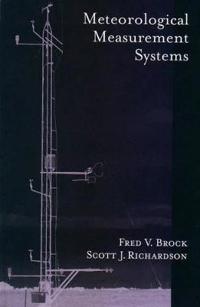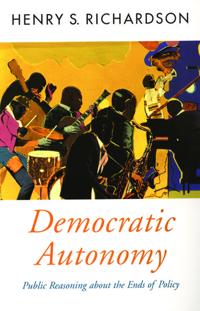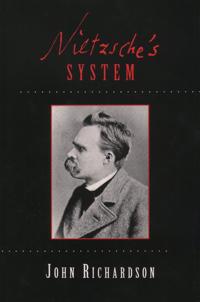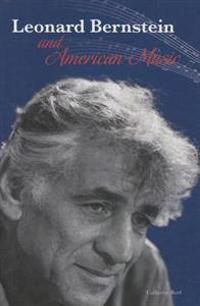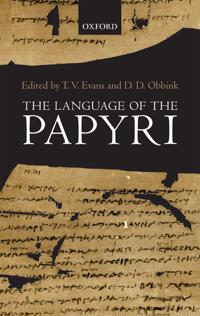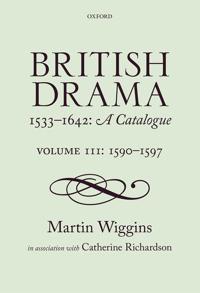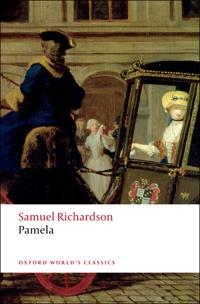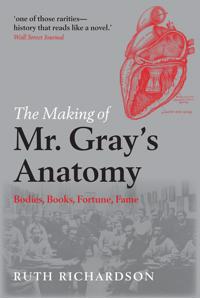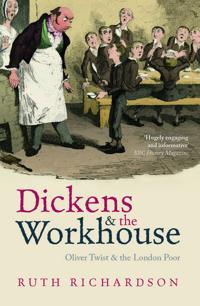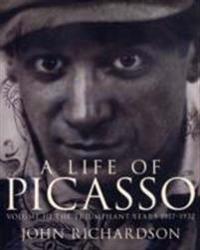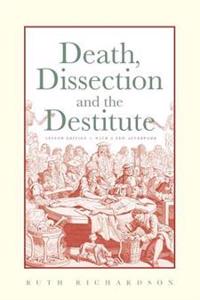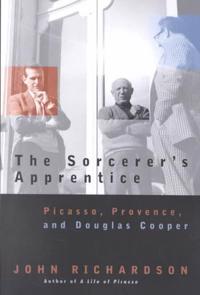New York Cafe (Pocket)
avMichael Dean, Peter (ILT) Richardson, Michael Dean
ISBN: 9780194234238 - UTGIVEN: 2007-12It is the year 2030, and an e-mail message arrives at New York Cafe: 'I want to help people and make them happy!' But not everybody is happy about the e-mail, and soon the police and the President are very interested in the New York Cafe.[...]
Working Memory and Human Cognition (Pocket)
avJohn T. E. Richardson, Randall W. Engle, Lynn Hasher, Robert H. Logie, Ellen R. Stoltzfus, Rose T. Zacks
ISBN: 9780195101003 - UTGIVEN: 1996-05-16Meteorological Measurement Systems (Inbunden)
avFred V. Brock, Scott J. Richardson, Fred V. Brock
ISBN: 9780195134513 - UTGIVEN: 2001-02This book treats instrumentation used in meteorological surface systems, both on the synoptic scale and the mesoscale, and the instrumentation used in upper air soundings. The text includes material on first- and second-order differential equations as applied to instrument dynamic performance, and r[...]
Democratic Autonomy (Häftad)
avHenry S. Richardson
ISBN: 9780195150919 - UTGIVEN: 200312What would our decision-making procedures look like if they were actually guided by the much-discussed concept of "deliberative democracy"? What does rule by the people for the people entail? And how can a modern government's reliance on administrative agencies be reconciled with this populist ideal[...]
Organizational Change in 100 Days: A Fast Forward Guide (Pocket)
avElspeth J. Murray, Peter R. Richardson
ISBN: 9780195153125 - UTGIVEN: 2003-03-01Nietzsche's System (Häftad)
avJohn Richardson
ISBN: 9780195155952 - UTGIVEN: 2002-06This book argues, against recent interpretations, that Nietzsche does in fact have a metaphysical system--but that this is to his credit. Rather than renouncing philosophy's traditional project, he still aspires to find and state essential truths, both descriptive and valuative, about us and the wor[...]
Nietzsche's New Darwinism (Häftad)
avJohn Richardson
ISBN: 9780195380293 - UTGIVEN: 2009-06Nietzsche wrote in a scientific culture transformed by Darwin. He read extensively in German and British Darwinists, and his own works dealt often with such obvious Darwinian themes as struggle and evolution. Yet most of what Nietzsche said about Darwin was hostile: he sharply attacked many of his i[...]
True Blues: The Politics of Conservative Party Membership (Inbunden)
avPaul Whiteley, Patrick Seyd, Jeremy Richardson
ISBN: 9780198277859 - UTGIVEN: 1994-10-27The Language of the Papyri (Inbunden)
avAnn Richardson, Megan Faure
ISBN: 9780199237081 - UTGIVEN: 200912The modern rediscovery of the Greek and Latin papyri from Egypt has transformed our knowledge of the ancient world. We cannot, however, make the same claim in the specific area of language study. Although important studies of the language of the papyri have appeared sporadically over the past centur[...]
British Drama 1533-1642 (Inbunden)
avMartin Wiggins, Catherine Richardson, Mark Merry
ISBN: 9780199265718 - UTGIVEN: 2011-12-01This is the first volume of a detailed play-by-play catalogue of drama written by English, Welsh, Irish, and Scottish authors during the 110 years between the English Reformation and the English Revolution, covering every known play, extant and lost, including some of which have never before been id[...]
British Drama 1533-1642: A Catalogue (Inbunden)
avMartin Wiggins, Catherine Richardson
ISBN: 9780199265725 - UTGIVEN: 2012-09-13Volume two of a comprehensive reference work detailing every play written by a British author during the English Renaissance. This volume covers the years when the London commercial theatres emerged and the dominant mode of English drama changed from the morality play to the heroic tragedies of Chri[...]
British Drama 1533-1642: a Catalogue (Inbunden)
avMartin Wiggins, Catherine Richardson
ISBN: 9780199265732 - UTGIVEN: 201306This is the third volume of a detailed play-by-play catalogue of drama written by English, Welsh, Irish, and Scottish authors during the 110 years between the English Reformation to the English Revolution. The catalogue covers every known play, extant and lost, including some which have never before[...]
British Drama 1533-1642 (Inbunden)
avMartin Wiggins, Catheirne Richardson, Martin Wiggins
ISBN: 9780199265749 - UTGIVEN: 2014-09This is the fourth volume of a detailed play-by-play catalogue of drama written by English, Welsh, Irish, and Scottish authors during the 110 years between the English Reformation to the English Revolution, covering every known play, extant and lost, including some which have never before been ident[...]
Pamela (Pocket)
avSamuel Richardson, Thomas Keymer, Alice Wakely
ISBN: 9780199536498 - UTGIVEN: 200808'Pamela under the Notion of being a Virtuous Modest Girl will be introduced into all Familes,and when she gets there, what Scenes does she represent? Why a fine young Gentleman endeavouring to debauch a beautiful young Girl of Sixteen.' (Pamela Censured, 1741) One of the most spectacular successes [...]
The Making of Mr Gray's "Anatomy" (Häftad)
avRuth Richardson
ISBN: 9780199570287 - UTGIVEN: 2009-10Gray's Anatomy is probably one of the most iconic scientific books ever published: an illustrated textbook of anatomy that is still a household name 150 years since its first edition, known for its rigorously scientific text, and masterful illustrations as beautiful as they are detailed. The Making [...]
Dickens And The Workhouse (Inbunden)
avRuth Richardson
ISBN: 9780199645886 - UTGIVEN: 2012-02-02The story of the recently discovered London workhouse that Charles Dickens lived almost next door to in the years before he wrote Oliver Twist - told by the historian who did the sleuthing behind these exciting new findings.[...]
Dickens and the Workhouse (Häftad)
avRuth Richardson
ISBN: 9780199681280 - UTGIVEN: 2013-11The recent discovery that as a young man Charles Dickens lived only a few doors from a major London workhouse made headlines worldwide, and the campaign to save the workhouse from demolition caught the public imagination. Internationally, the media immediately grasped the idea that Oliver Twist's wo[...]
Acting without Agony (Häftad)
avDon Richardson
ISBN: 9780205151653 - UTGIVEN: 199310This practical, step-by-step guide is organized into 18 lessons for achieving outstanding performance in acting and directing. This text offers an alternative to the Stanislavsky "method" and teaches another way of arriving at emotions, which is described in detail throughout the text. MARKETS: Unde[...]
Texas (Pocket)
avRupert N. Richardson, Adrian Anderson, Cary D. Wintz, Ernest Wallace
ISBN: 9780205661688 - UTGIVEN: 2009-07-31This is a comprehensive yet accessible survey of Texas history-from early times to the present. Written in a narrative style, this book offers a balanced presentation of all time periods and topics of Texas history. From the beginning sections on geography and prehistoric people, to the concluding d[...]
Life of Picasso (Inbunden)
avJohn Richardson
ISBN: 9780224031219 - UTGIVEN: 2007-11Drawing on research from interviews and archival material, this is the third volume of the biography covering Picasso's life and work. It reveals Picasso at the height of his powers, producing not only the costumes and sets for such Diaghilev Ballets Russes productions as Parade and Tricorne but som[...]
Death, Dissection and the Destitute (Häftad)
avRuth Richardson
ISBN: 9780226712406 - UTGIVEN: 2001-01In the early nineteenth century, body snatching was rife because the only corpses available for medical study were those of hanged murderers. With the Anatomy Act of 1832, however, the bodies of those who died destitute in workhouses were appropriated for dissection. At a time when such a procedure [...]
The Sorcerer's Apprentice (Häftad)
avJohn Richardson
ISBN: 9780226712451 - UTGIVEN: 2001-12This is John Richardson's memoir of the time he spent living with and learning from the deeply knowledgeable and temperamental art collector, Douglas Cooper. For ten years the two entertained a circle of friends that included Jean Cocteau, W.H. Auden, Tennessee Williams and Pablo Picasso.[...]
Business Pre-intermediate, The: Student's Book DVD ROM Pack (Övrig)
avKaren Richardson, John Sydes, Marie Kavanagh, John Allison, Paul Emmerson
ISBN: 9780230021563 - UTGIVEN: 2008-07-30




